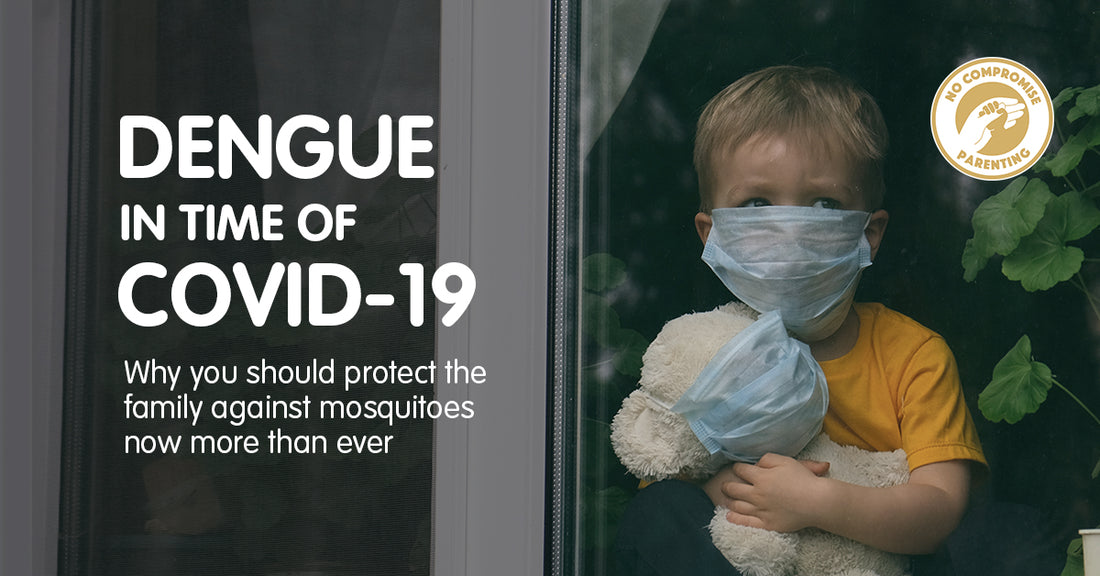DENGUE in time of COVID-19: Why you should protect the whole family against dengue now more than ever
Parents want their kids to love every living being in this world, but there are just some that you would not want your kids to play with.
According to an article from The Insider, the world’s deadliest animal is neither a shark or a snake, BUT MOSQUITOES.

Believe it or not, according to Research Triangle Institute, these pesky bugs are responsible for the most number of humans killed (830,000 per year to be exact) according to a study.
Mosquitoes transmit harmful viruses and parasites, thereby causing diseases like Malaria, Chikunguya, Zika Fever, Encephalitis, and the most-common yet deadly of all, DENGUE.

Despite the prolonged quarantine restrictions due to COVID-19, numerous cases of dengue related hospitalizations and deaths are still reported throughout the country. In 2021 and as of 17 April 2021, the Philippines reported a total of 21,478 dengue cases, including 63 deaths. Source: WHO
What's more alarming is the recent study conducted by Clinical Infectious Disease Journal suggests that people who have had dengue in the past are twice as likely to show symptoms of COVID-19 once they are infected. Source: news-medical.net

Sanitation helps protect your family against COVID-19, but mosquito-proofing your home is ALSO A MUST especially for your little ones. Here are some safety tips to keep mosquitoes at bay and prevent dengue:
1. Wear light-colored clothing
Mosquitoes use their vision and thermal sensory to detect body heat to spot their hosts. This is why mosquitoes are more attracted to darker colors over lighter colors. Unlike lighter ones, clothes with darker color absorbs and traps body heat more, making it easier for them to detect a potential host.
2. Eliminate areas with stagnant water

Mosquitoes only need about an inch of water to breed in, that is why it is important to eliminate even the smallest areas of standing water like tree stumps, unused tires, pet bowls, puddles, and even planters and pots. Don’t forget to secure water containers at home to prevent mosquitoes from breeding in.
3. Avoid going outdoors during mosquito hours

𝐀𝐞𝐝𝐞𝐬 𝐚𝐞𝐠𝐲𝐩𝐭𝐢, the mosquito that carries dengue virus, is a daytime feeder: The peak biting periods are early in the morning from 6am to 10am and in the afternoon before sunset at 4pm to 6pm.
4. Use insect repellent that is safe for the kids and the whole family

Your insect repellent should not be as harmful as the disease. DEET is an effective component that is widely used in insect repellents. However, it is a substance that's petroleum based and studies have shown that DEET is especially dangerous for small children. Seizures may occur in small children who regularly have DEET on their skin for long periods of time.
Excessive and improper use of DEET may also cause uncoordinated movements, agitation, aggressive behavior, low blood pressure, and skin irritation, minor and serious reactions like allergies, and brain malfunction according to atsdr.cdc.gov.
But don't fret! Natural and safer alternatives are widely available in the market, especially for our little ones.
The Centers for Disease Control and Prevention (CDC) says that repellents containing the ingredients like picaridin, citronella, or oil of lemon eucalyptus can also protect against mosquitoes.
- Picaridin - an ingredient found in pepper plants and is considered by the EWG as equally effective yet safer than DEET
- Citronella - a natural insect repellent obtained from Cymbopogon nardus or citronella grass
- Essential oils like eucalyptus and andiroba - Widely used in mosquito repellent candles
These alternatives are found to be effective and especially safe for babies, for pregnant women, and even for breastfeeding moms.
With the COVID-19 virus still prevalent, it's important to still keep in mind that we need to mosquito-proof our surroundings and protect the whole family from the Dengue virus as well. With the safety tips we discussed, prevention will help you have one less thing to worry about when it comes to viruses you can contract.

